Episcopal Church Marks 50 Years of Female Priests
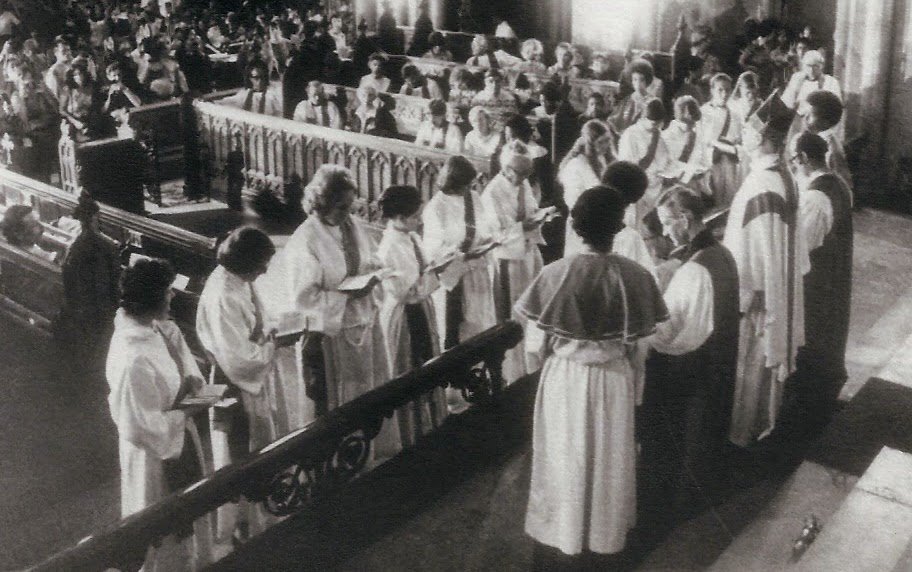
“Irregular” ordination at the Church of the Advocate in Philadelphia
On July 29th, 1974, eleven women were ordained as priests of the Episcopal Church. The women, all of whom were already ordained as deacons, were:
- Merrill Bittner
- Alla Bozarth-Campbell
- Alison Cheek
- Emily Hewitt
- Carter Heyward
- Suzanne Hiatt
- Marie Moorefield
- Jeanette Piccard
- Betty Schiess
- Katrina Swanson, and
- Nancy Wittig
Several of the women’s vocational paths took them to our diocese. Katrina Swanson, who was the fourth generation of her family to be ordained, later served at St. John’s church in Union City, while her husband George (also a priest) led Grace Chuch in nearby North Bergen. Swanson died of cancer in 2005 at age 70.
Nancy Wittig was ordained a deacon here in 1973, and later was rector of the Church of St. John the Divine in Hasbrouck Heights in the 1980s before joining the faculty of General Theological Seminary in New York. She observed the anniversary by celebrating the Eucharist at her last curacy, St. Peter’s Church in Lakewood, Ohio.
The Rev. Carter Heyward, another of of the eleven who is a noted feminist and theologian, preached at the Diocese of Pennsylvania’s celebration of the anniversary at the cathedral in Philadelphia.

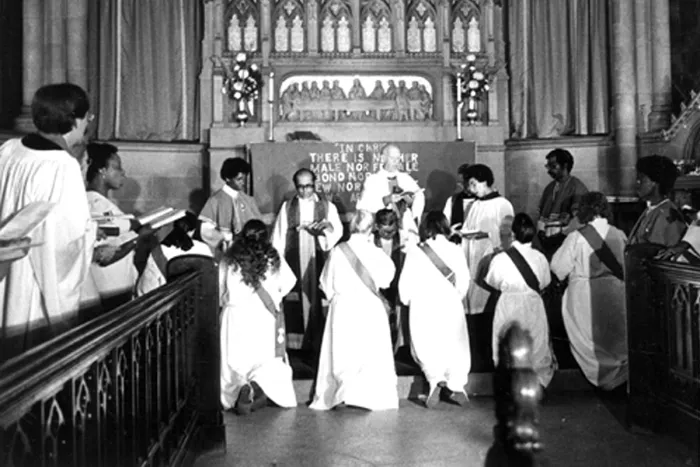
The act had support at least in principal among the House of Bishops (a majority voted “yes” in a straw poll the previous year), but no bishop was willing to participate in an ordination up til this point. The bishops who conferred the rite, the Right Rev. Daniel Corrigan, Robert L. DeWitt, and Edward R. Welles II (Swanson’s father), were all retired from diocesan leadership and perhaps felt they had little to lose for leading the church forward in this way. The Rt. Rev. Antonio Ramos, then bishop of Costa Rica, assisted at the service but did not participate in the ordination rite itself.
The event triggered both positive and negative reactions within the church. At an emergency meeting of the House of Bishops two weeks later, the ordinations were declared invalid. However one of them, the Rt. Rev. Arthur A. Vogel, astutely pointed out an ecclesiastical technicality that prevented them from doing so, so instead they were called “irregular” and the women were nevertheless inhibited from performing as priests, although several would indeed celebrate the Eucharist in defiance.
It was not until the General Convention 1976 that the ordinations were recognized. In response, opponents held an emergency conference of their own and some congregations went as far as leaving the church, forming several splinter organizations known as the “continuing Anglican movement” although they are not recognized as official member churches of the Worldwide Anglican Communion.
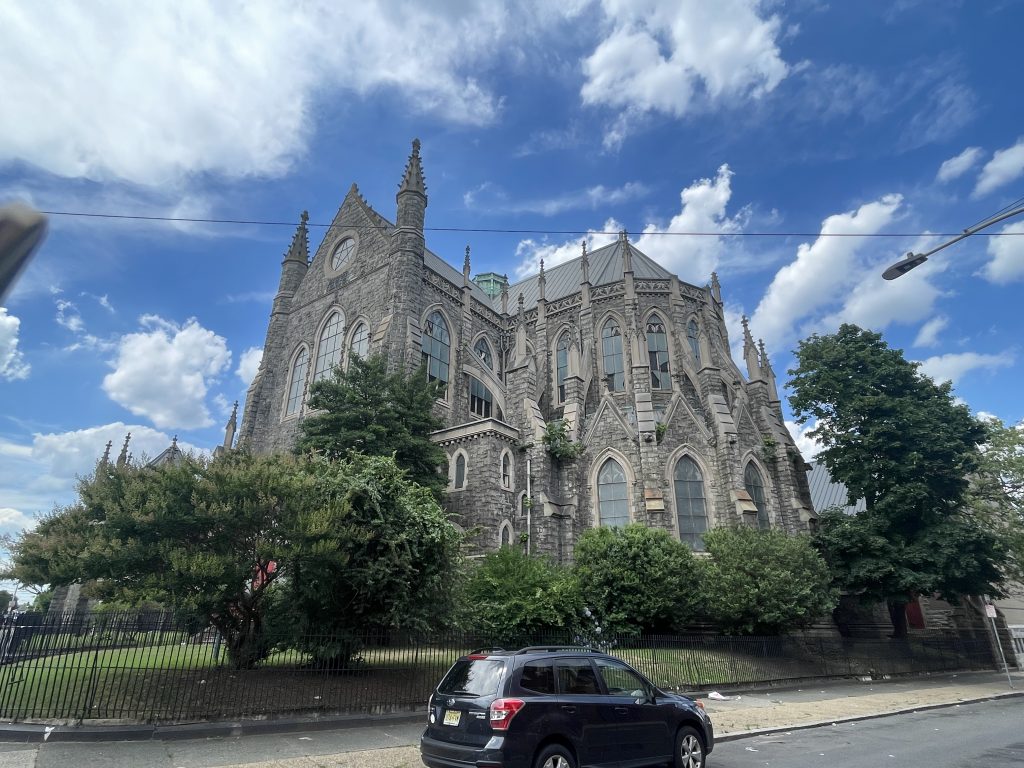
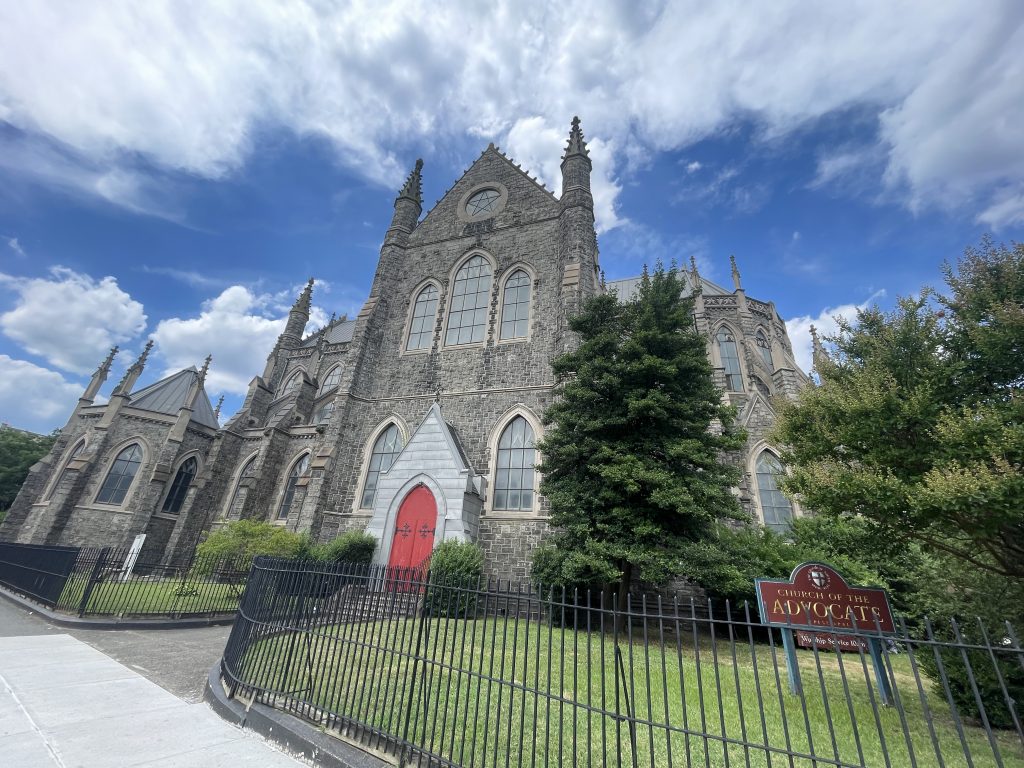
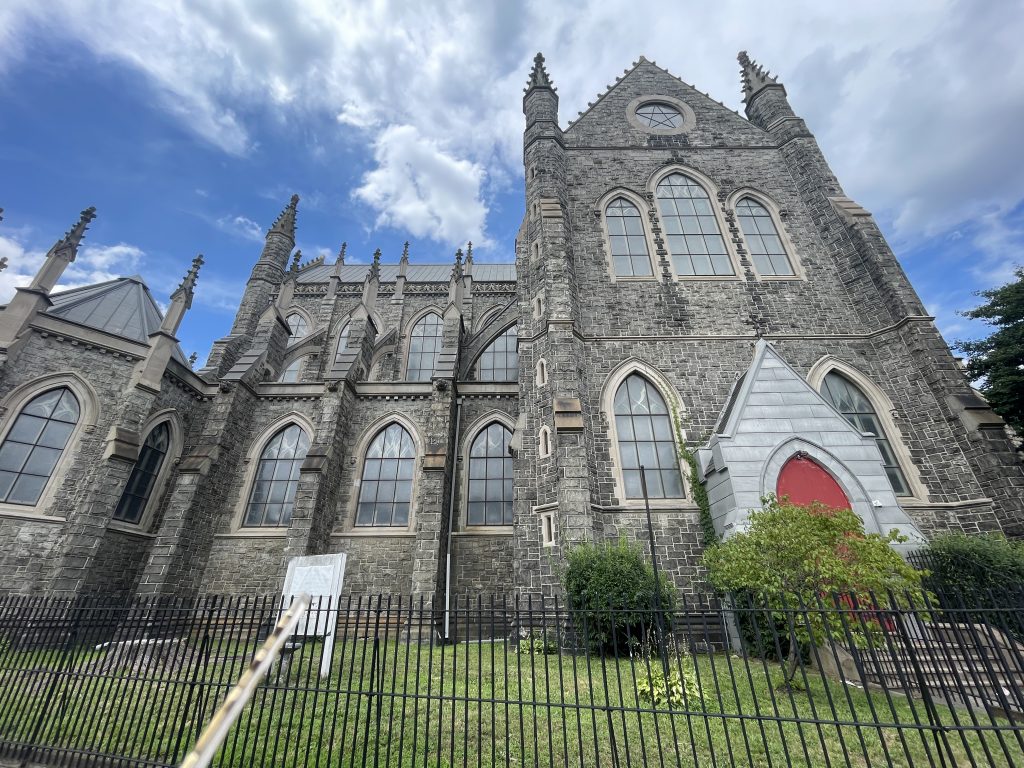
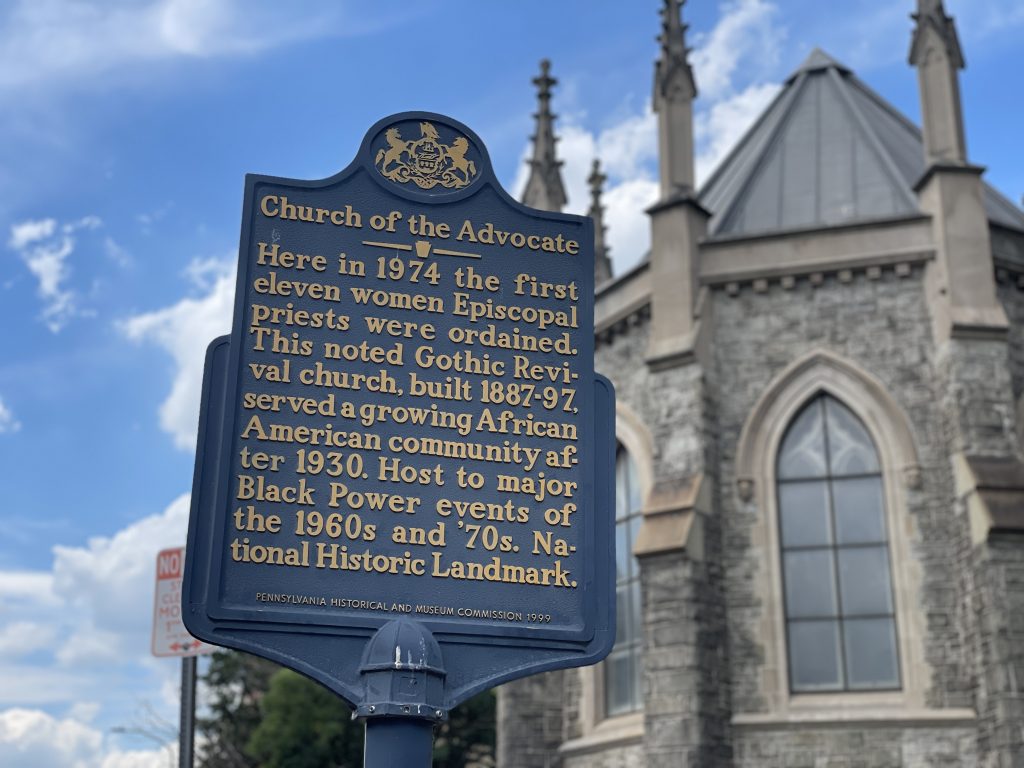
The venue for the service, the Church of the Advocate in northwestern Philadelphia, already had a reputation for being a catalyst of social change. Completed in 1897, it was dedicated to the glory of God and the memory of George W. South, a prominent merchant and civic leader. Between 1973 and 1979, murals depicting the Black experience by city artists Walter Edmonds and Richard J. Watson were painted throughout the interior. It has since been designated a National Historic Landmark, both for its gothic architecture and windows and its ongoing role in social progress.
The rector at the time, the Rev. Paul Washington, was active in community organizing, particularly the Black Power movement, and also served as a chaplain at the infamous Eastern State Penitentiary. He would later serve on the city commission to investigate the police department’s violent response in 1985 to the Christian anarchist organization known as MOVE, that resulted in the destruction of 65 homes and the deaths of eleven people including five children.
The sermon was delivered by Charles Vert Willie, a lay sociologist whose work focused on race and urban issues, who was also vice-president of the House of Deputies at the time.
The senior warden at Advocate, who served as crucifer for the service, was one Barbara Clementine Harris, who went on to later be ordained herself, and then consecrated as the first female bishop in the Anglican Communion.
This historic event in the life of the church is depicted in the documentary film The Philadelphia Eleven, which has been screened throughout the church over the past year since its premier last summer. You can read more, catch an upcoming screening, or watch the film online by clicking the link above.
For more information:

